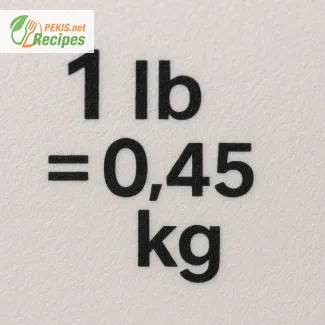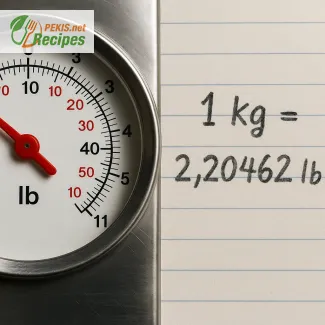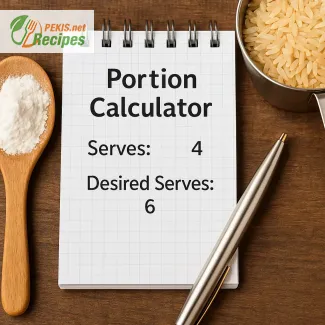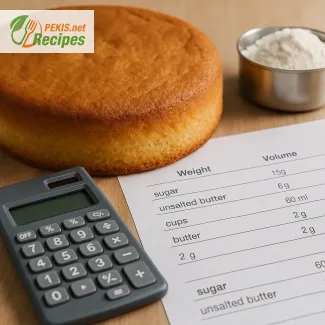
How to turn 1 lb into kilograms with confidence
Practical guide for home cooks, travelers, and health-conscious readers
Converting 1 lb to kg may seem like a small detail, but in many everyday situations—like preparing international recipes, packing luggage for air travel, or tracking fitness progress—precision matters. If you're following a UK or US-based recipe in Europe, or buying ingredients online from abroad, understanding how pounds relate to kilograms helps you make quick decisions without second-guessing your math. This article is here to make that task easier, more intuitive, and perfectly accurate—without sending you down a rabbit hole of confusing formulas.
Why do we still use pounds and kilograms side by side?
In much of the world, kilograms (kg) are the standard unit of mass. But in the United States and some parts of the UK, the pound (lb) is still widely used. That means recipes, product labels, and even fitness plans often come with weights listed in lbs, leaving many wondering how to convert them into familiar kilograms.
One pound (1 lb) is equal to 0.453592 kilograms (kg). That means it’s just under half a kilo. Knowing this can be especially handy when shopping abroad or using global cookbooks. But most people don’t want to remember a long decimal every time—they just want the right number, fast.
Simple conversion: 1 lb equals 0.45 kg (rounded)
For most practical, everyday purposes—whether you're weighing meat, calculating baggage allowance, or measuring gym progress—you can safely round:
1 lb ≈ 0.45 kg
This gives you a solid enough estimate for cooking or casual use. However, if you need higher precision (e.g., for shipping, scientific use, or pharmaceuticals), stick to the exact value of 0.453592 kg.
Real-life example: cooking conversions made easy
Let’s say you’re following an American recipe for beef stew that calls for 1 lb of beef chuck. If you live in a country using the metric system, you’ll need to convert that to grams or kilograms.
1 lb = 453.6 grams, so that means you need just under half a kilogram of meat. When shopping, look for a package labeled 450 g or 500 g—either will do just fine.
This is especially helpful when cooking in bulk or doubling recipes. For instance:
- 2 lbs = 0.91 kg
- 3 lbs = 1.36 kg
Once you grasp how 1 lb fits into your metric habits, you’ll convert on the fly.
Travel and luggage: don't let weight conversions ruin your trip
Airlines often give weight allowances in kilograms, especially outside the U.S., while American-style luggage tags or scales may list pounds. Imagine this: your suitcase weighs 1 lb more than allowed, but the limit is in kilograms. How much is that really?
Well, 1 lb over means you're over by about 0.45 kg. That might not seem like much, but depending on the airline, that small difference could lead to extra fees. Having a conversion reference (or better yet, a digital scale with both units) can save time and money.
Fitness and health tracking: lbs to kg on your scale
Many fitness apps, digital bathroom scales, and nutrition plans toggle between lbs and kg. If your personal goal is to lose 10 lbs, you might want to know how that reflects in kilograms.
10 lbs ≈ 4.54 kg
So when your local gym tracks weight in kilograms, you can quickly measure your progress without feeling lost or misinformed.
Why not just switch to one unit worldwide?
The truth is: people get attached to familiar systems. Culturally, pounds have historical roots in the imperial system, while kilograms follow the SI metric system, which is more scientific and globally adopted.
Rather than forcing a switch, it's smarter to understand both systems and know how to move between them. That way, you're prepared—whether you're baking with an American recipe, checking baggage at Charles de Gaulle Airport, or reading nutrition labels on imported food.
Quick formula if you forget:
If you ever want to do the math manually, just remember:
Weight in kg = weight in lbs × 0.453592
So:
- 1 lb × 0.453592 = 0.453592 kg
- 5 lbs × 0.453592 = 2.26796 kg
- 20 lbs × 0.453592 = 9.07184 kg
Still, in most cases, rounding to 0.45 kg per lb will get you close enough.
Memorizing just one number is enough
If you take away one thing from this article, let it be this:
1 lb = 0.45 kg (rounded)
This tiny conversion unlocks simplicity across kitchens, airports, gyms, and pharmacies. With it, you’ll move confidently between two of the world’s most common weight units—no calculator needed.
Whether you're meal prepping, shopping abroad, or logging weight loss goals, this quick knowledge makes a big difference.



